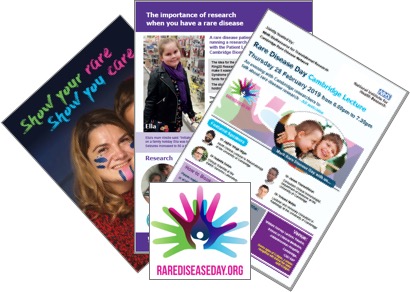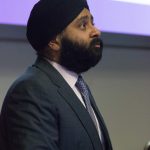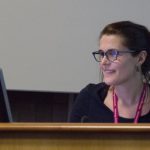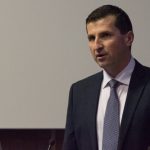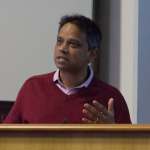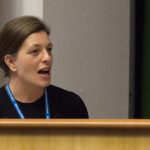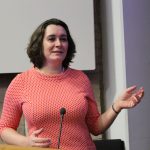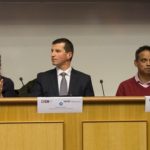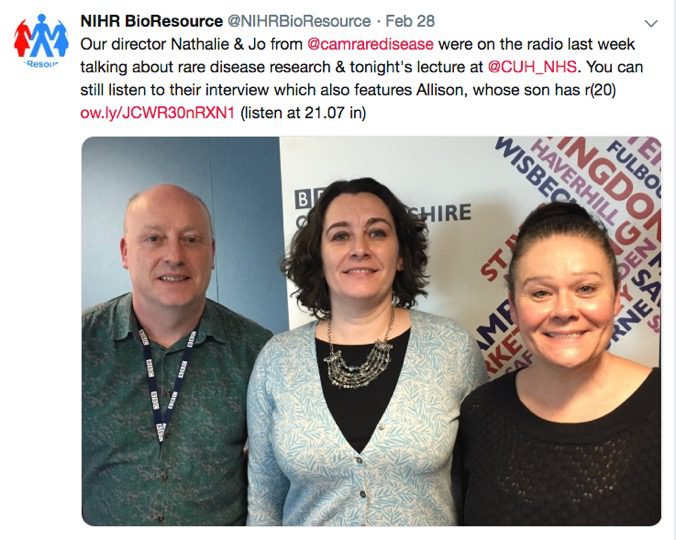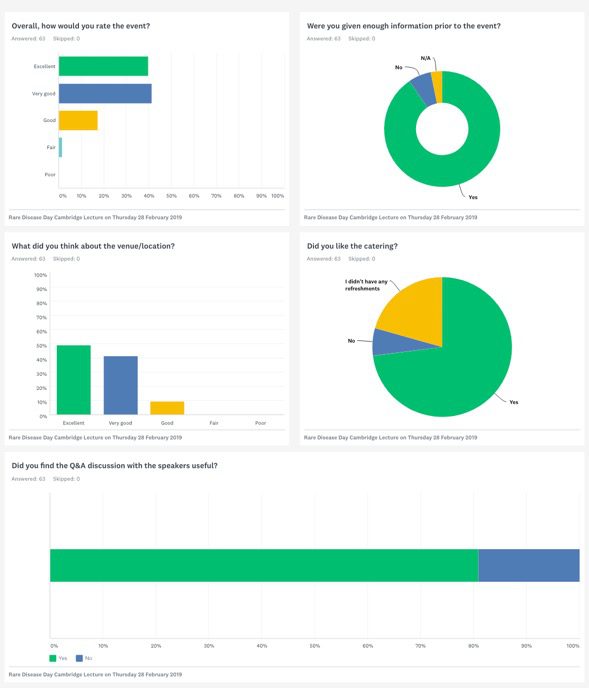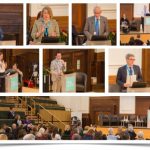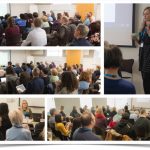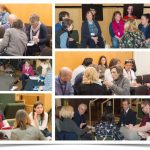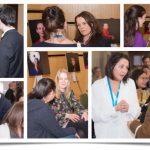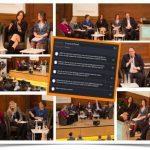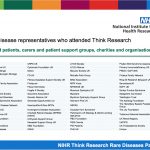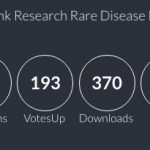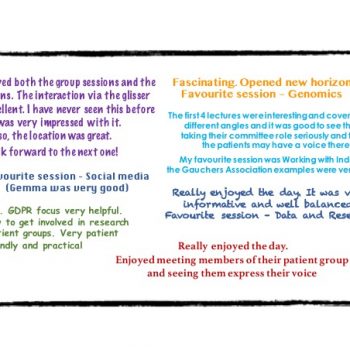Cambridge research wins two NIHR regional awards
A research team and senior clinical trial coordinator swooped top awards at the National Institute for Health and Care Research (NIHR) Clinical Research Network (CRN) Eastern celebration awards in July.
The Rheumatology Research Unit at Cambridge University Hospitals were awarded a prize for their commitment to inclusive working, whilst Paula Turnball, senior clinical trial coordinator for the Cambridge Eye Research Centre (CERC) won the ‘Putting People First’ award.
Rheumatology research team
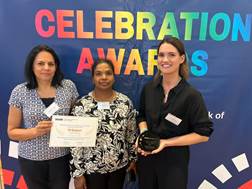
Their award, inclusive working, recognises people or teams who have been instrumental in developing a new project or implementing new practice to ensure research is delivered with equality, diversity and inclusivity.
The Rheumatology Research unit study conditions that impact the joints, tendons, muscles, ligaments, and bones, such as arthritis, osteoarthritis and gout. The Cambridge team have been working on studies that explore how different conditions in Rheumatology can affect and respond to treatments in patients from varying ethnic backgrounds.
The team initiated an inclusion ‘audit’ to identify whether people from different ethnic backgrounds were underrepresented in their research. Using the results of their audit, they are working to open outreach clinics in these areas of need to support inclusive recruitment and increase the diversity of those taking part in their research. Outreach clinics are staffed by small, diverse teams of multilingual staff, ensuring patients feel comfortable with the care provided and safe in the research environment.
The award judges recognised that the team had ‘gone the extra mile to ensure people from under-served groups can access research opportunities’. The award was accepted by Jane Rowlands, Lissamma Titti and Katherine Hodges, and was presented by Prof Ruth Endacott, NIHR Director of Nursing and Midwifery.
Sam Wright, lead rheumatology research nurse said: “We are absolutely thrilled to have received this award. Research is for everyone, not only do we want to improve outcomes for patients but to make sure everyone has the opportunity to take part in a study.”
Paula Turnball
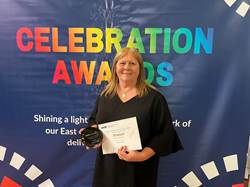
Paula works as a senior clinical trial coordinator for the CERC and looks after several different trials in ophthalmology. The team run a variety of trials, anything from questionnaires to surgical and investigational medications.
The award highlighted research teams or individuals who had gone the extra mile for patients and transforming the way research is delivered and to improve the experience for patients.
Paula was nominated by Professor Rupert Bourne, Consultant Ophthalmic Surgeon, who said: “Due largely to her drive, and personable interaction with patients and staff, she has been a big factor behind the growth of the Ophthalmology NIHR portfolio from one study in 2018 to 15 active trials, and five in set-up today. Almost all the patients thank the research team and Paula in particular for being as flexible and thoughtful as possible.”
The award was presented to Paula by Professor Erika Denton, Medical Director and Accountable Officer for CRN East of England at Norfolk and Norwich University Hospitals NHS Foundation Trust.
I was very humbled and proud to win such an award especially as it is patient focused. Our research patients are very important to us. They give up their time, agree to extra tests and procedures and ask for nothing in return. Without them we wouldn’t be able to move medicine forward, so anything we can do to improve their experience is always top priority. I say ‘we’ because the whole team at CERC is exceptional. It really is a privilege to work in research, I feel very lucky.
Paula Turnbull
Rare Disease Day Cambridge Lecture follow-up
Put motivated people together to talk rare disease research and network and you can expect an interesting evening. And that’s what happened when over 150 people attended the public evening, hosted by the NIHR BioResource for Translational Research and Cambridge Rare Disease Network, that took place on International Rare Disease Day.
Here you can find out what was discussed and see the event feedback.
Full Agenda and Biographies from the day.
Photographs from the evening
- Prof Patrick Chinnery
- Dr Jagtar Singh Nijjar
- Dr Isabelle Delon
- Dr Tomasz Matys
- Dr James Thaventhiran
- Dr Gemma Chandratillake
- Dr Nathalie Kingston
- Rare Disease Day Cambridge Lecture Panel
Presentations from the evening
The links below will take you to view the audio and presentation slides for each talk.
- Welcome Address: Professor Patrick Chinnery, NIHR BioResource Co-Chair, Head of Department for Clinical Neurosciences, University of Cambridge
- Improving Patient Health in CNO and SAPHO: Dr Jagtar Singh Nijjar, NIHR Clinical Lecturer Lecture in Rheumatology, University of Cambridge
- Next Generation Children Project – Rapid Genome Sequencing for critically ill children: Dr Isabelle Delon,PhD, Clinical Scientist, EMEE Genomic Laboratory
- Imaging in the diagnosis of Rare Diseases: Dr Tomasz Matys, University Lecturer and Honorary Consultant in Radiology, Department of Radiology, University of Cambridge
- Whole Genome Sequencing for susceptibility to infectious disease, potential for patient benefits:Dr James Thaventhiran, Consultant Clinical Immunologist, Department of Medicine, University of Cambridge (slides and audio are not available for this presentation)
- Closing Address: Dr Nathalie Kingston, NIHR BioResource Director
Feedback and Social Media – click on the images below to view full size
See some of the suggested topics for future rare disease events
View some of the Social Media tweets from the event
If you require any further details about the evening, please contact Georgina Norris on email: gan23@medschl.cam.ac.uk.
Patient group shows power of working together
“Informative and inspirational”. For Cambridge BRC’s Georgina Norris, those two words summed up this year’s Beat SCAD conference, which took place in Birmingham earlier this month.
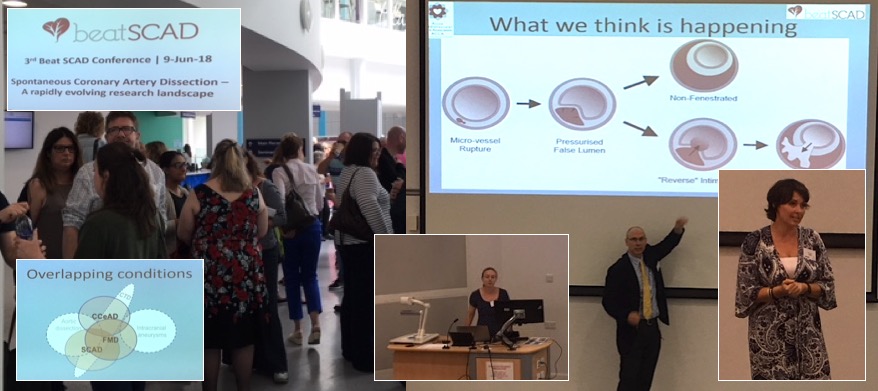
SCAD – or Spontaneous Coronary Artery Dissection – is a rare cardiac condition, which cannot yet be predicted or prevented. SCAD can cause heart attack, heart failure, cardiac arrest and can be fatal. Although it has been reported across a wide age range, the majority of cases are in young- to middle-aged women.
Georgina – who is Patient & Public Involvement and Engagement (PPI/E) Co-ordinator at the NIHR Cambridge Biomedical Research Centre – said: “I first met Rebecca Breslin, who is one of the charity Beat SCAD’s co-founders, when working on PPI/E projects for rare diseases.
“Rebecca’s story – along with the 68 SCAD survivors who were also at the conference – is incredible.
“Aged just 34, Rebecca had a heart attack. She knew what it was but no one believed her, because she was young, slim and looked healthy.
“Working with Leicester-based interventional cardiologist and lead for the UK SCAD Research Project Dr Adlam at Leicester University, she then made it her mission to find out other people around the country who have also had SCADs.
“This gave Dr Adlam the numbers he needed to run clinical trials to find out more about the disease.”
Patient power
At the conference Rebecca and Beat SCAD co-founder Karen Rockell both spoke about the charity’s fundraising achievements – which last year alone raised £25,000 for research carried out by Dr Abi Al-Hussaini, former research fellow in Leicester and now London- based cardiologist.
Rebecca and Karen also broke the news that a further £50,000 raised by Beat SCAD will help fund future research run by Dr David Adlam and his team.
Georgina said: “Researchers under Dr Adlam are looking to see if SCAD is an inherited condition.
“On the day SCAD research fellow Dr Alice Wood – who is part of Dr Adlam’s team – also talked about her work looking at sub-groups of patients, such as men, pregnant women and those who’ve had recurrent SCADs, and how this will help add missing information to the research jigsaw puzzle.”
Life after SCAD
For Georgina the day was a demonstration of PPI/E in action: “The day showed that when doctors and researchers work with patients and their carers, the results can be amazing.
“We know more about SCAD than we did even five years ago, and the example of Beat SCAD shows what can be achieved through patients joining forces and working with researchers.
“Above all it showed that there is life after SCAD.”
- For more information visit http://beatscad.org.uk/
- Watch a video created by the British Heart Foundation about the SCAD research at the NIHR Leicester Biomedical Research Centre.
- Beat SCAD is a patient-led charity established to raise awareness of SCAD, provide support to patients and others affected by SCAD, and raise money to fund research into SCAD.
NIHR ‘Think Research’ Rare Diseases Patient Day: Follow-Up
Put motivated people together and you can expect a lot of questions and debate. And that’s what happened when 150 people representing more than 70 rare diseases travelled from all corners of England to central London for the Rare Disease Patient Day, hosted by us, the NIHR Cambridge Biomedical Research Centre and the NIHR BioResource for Translational Research that took place in March this year.
Here you can find out what was discussed, and the questions raised and responses given.
Full agenda from the day.
Photographs from the day
- Speakers
- Training Sessions
- Discussions
- Networking
- Consent Panel
Training Sessions, Presentations and Resource Sheet
Attendees choose from one of four one-hour sessions, repeated again after lunch so they could attend two different sessions over the course of the day. Please find a resource sheet and presentations below.
- Presentation: Data and Research
- Presentation: Genomics
- Presentation: Social Media
- Presentation: Working with Industry
- Download a resource sheet with useful website link’s
Presenters and Attendees on the Day
The day opened with a lively introduction from Vicky Ford, MP and Joint Chair of All Party Parliamentary Group on Rare, Genetic and Undiagnosed Conditions, followed by lay-friendly presentations from Prof Patrick Chinnery. This was then followed by guest speakers: Prof Allan Colver, Dr Patrick Yu Wai Man, Maria Kokocinska, Janet Tuberville-Greenley, Dr David Adlam, Rebecca Breslin, Prof Paul Gissen and closed with Prof John Bradley. Presenters’ biographies
Feedback and Questions
Download the responses to questions raised on the day
Download the feedback (excel) from the Training Sessions
View Survey Monkey event feedback
Download social media breakdown and view some of the tweets
If you require any further details about the day, please contact Georgina Norris on email: gan23@medschl.cam.ac.uk.

